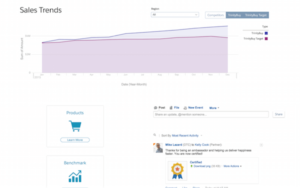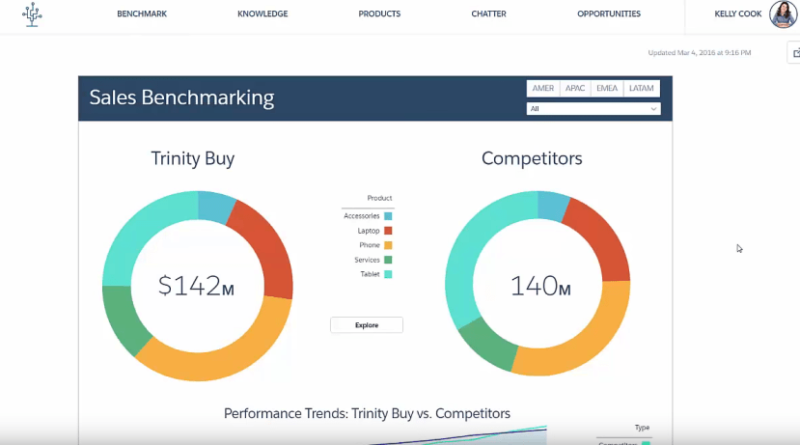Salesforce Launches Wave for Community Cloud
In 2014, Salesforce launched Community Cloud, propelling itself into the fast-growing enterprise collaboration market. Last year, it launched Wave Analytics.
Now, the company is introducing Wave for Community Cloud, which gives businesses analytics tools that can be applied across their partner ecosystems.

“We’ve heard it before: Selling is a team sport,” says Salesforce’s Jamie Domenici. “Companies across the manufacturing, high-tech, consumer packaged goods, financial services industries and more rely on an extensive network of resellers, distributors, brokers, franchises and agents to drive growth. In fact, thousands of Salesforce customers are already using the Salesforce Community Cloud to better manage relationships and foster collaborative selling, planning and knowledge sharing amongst their channel partner ecosystem. And they’re seeing results — Community Cloud customers report an 86 percent increase in cross-sell and upsell opportunities. Now with Wave, customers can further extend the power of Community Cloud by arming partners with the same sales insights that a company’s own reps leverage to accelerate growth.”
“Wave for Community Cloud enables customers to embed Wave Analytics dashboards into any Partner Community, providing channel partners with the insights they need to optimize sales,” Domenici adds. “Previously, partner managers couldn’t see all of their data in one place and would spend time reconciling spreadsheets or searching disparate systems looking for insights on what worked in the past. And worse, partner sales reps would often be left guessing which deals to focus on or wasting time following up on the wrong opportunities. But when armed with personalized, data-driven sales insights, channel partners are able to unlock new sales opportunities and close deals faster, as if they are a true extension of a company’s sales team.”
You can check out a demo here:



